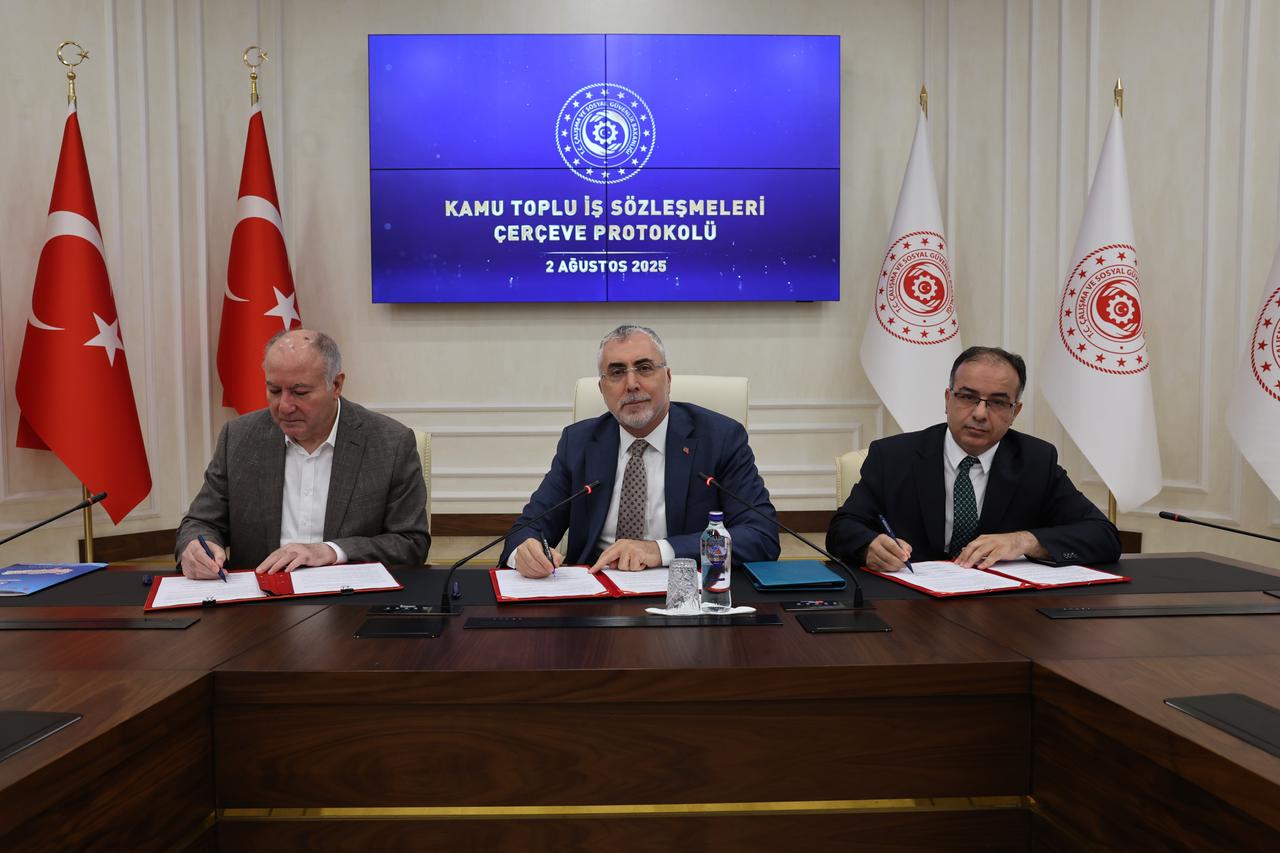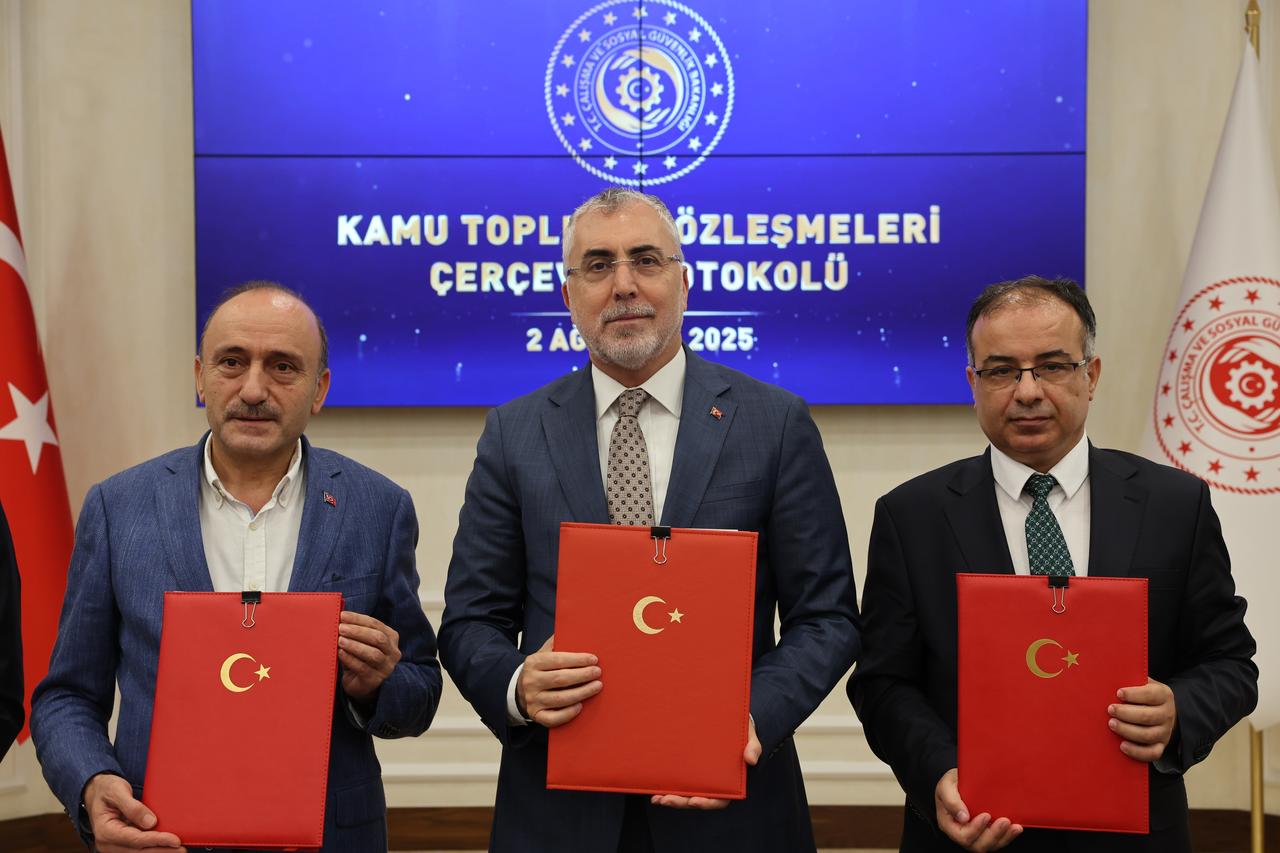
Türkiye concluded a long-running dispute over public sector wages by signing a new collective labor agreement on Saturday, covering more than 600,000 workers across state institutions and affiliated organizations.
The agreement, reached with leading labor confederations TURK-IS and HAK-IS, follows weeks of stalled negotiations and narrowly averts a strike movement that was set to begin on Aug. 1.
The wage talks had reached a deadlock in July after the government’s initial proposal failed to meet union demands. The Confederation of Turkish Trade Unions (TURK-IS) announced plans for strike action to begin with mine workers at several state-run boron mining facilities operated by Eti Maden.
The planned walkout, covering critical production sites in Ankara, Balikesir, Eskisehir, and Kutahya, was postponed by 60 days under a presidential decree issued by President Recep Tayyip Erdogan.

The breakthrough came after the government revised its wage offer, proposing a 24% raise for the first half of 2025, followed by successive increases of 11%, 10%, and 6% for each six months through the end of 2026. The agreement was finalized at a meeting held at the Ministry of Labor and Social Security, chaired by Minister Vedat Isikhan, and attended by representatives from TURK-IS, HAK-IS, and public-sector union leaders.
Under the deal, workers earning below ₺42,000 ($1,033) in gross monthly wages will see their pay raised to that level. Those already earning ₺42,000 or more will receive a flat increase of ₺1,200. Additional raises will be applied based on the wage bands and inflation protections built into the agreement.

The protocol includes a mechanism to account for inflation, ensuring that if the official inflation rate surpasses the agreed-upon wage hikes in any period, the difference will be added to the following raise.
Retroactive payments for wage differences and other benefits, covering the period between the contract’s effective date and the signing, will be made promptly based on institutional budget capacity.
Additional bonus payments, fixed-amount adjustments, and premiums tied to specific institutions were also included in the finalized terms. For contracts with start dates of Feb. 1, March 1, April 1, and May 1, 2025, supplementary raises will be calculated to reflect accumulated inflation differences.

Labor and Social Security Minister Vedat Isikhan said the government reached the agreement after nearly seven months of negotiations and described it as a product of sustained social dialogue.
He thanked President Erdogan and senior government officials for their support and reaffirmed the administration’s commitment to protecting public workers from inflationary pressures.
“We agreed on wage increase rates of 24%, 11%, 10%, and 6% for the four six-month periods covering 2025 and 2026,” Isikhan said in a social media statement. “We will continue our efforts to support our workers and safeguard their welfare.”